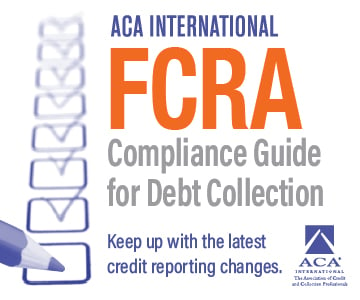 The FTC’s $100 million action against Vonage earlier this month highlights regulators’ increased focus on deceptive online practices.
The FTC’s $100 million action against Vonage earlier this month highlights regulators’ increased focus on deceptive online practices.
11/17/2022 2:30 P.M.
7 minute read
State and federal regulators have been increasingly focused on exposing companies’ use of “dark patterns:” deceptive online practices and other hurdles that make it difficult for consumers to stop recurring charges or understand terms and conditions.
On Nov. 3, the Federal Trade Commission filed an action against internet phone service provider Vonage, alleging the company “used dark patterns to make it difficult for consumers to cancel and often continued to illegally charge them even after they spoke to an agent directly and requested cancellation,” according to a press release.
The regulator’s complaint alleges in part that despite allowing its customers to sign up for services online, over the phone and through other venues, Vonage forced customers to cancel only by speaking to a live agent on the phone. The company also hid the cancellation phone number on its website, did not consistently transfer customers to that number from the normal customer service number, offered reduced hours the line was available and charged unexpected high-dollar early termination fees that were not clearly disclosed when the customer signed up for the service.
The consequence? In part, Vonage agreed to a proposed court order that requires it to pay $100 million in refunds to consumers and make its cancellation process simple and transparent.
“This record-breaking settlement should remind companies that they must make cancellation easy or face serious legal consequences,” said Samuel Levine, director of the FTC’s Bureau of Consumer Protection.
Recognizing Dark Patterns
The FTC has been monitoring dark patterns for several years, and it is not alone. The Consumer Financial Protection Bureau and state attorneys general have also started taking action against companies engaging in what the CFPB calls “online trickery.”
Speakers at a 2021 FTC public workshop, which included consumer advocates, members of Congress, researchers and legal experts, described dark patterns as practices that “often take advantage of consumers’ cognitive biases to steer their conduct or delay access to information needed to make fully informed decisions,” according to a subsequent FTC report.
Examples of dark patterns include:
- Countdown timers on offers that are not actually time-limited.
- Burying the mention of fees in an un-bolded itemization sandwiched between more prominent, bolded paragraphs.
- Making an “accept all cookies” button brighter and more visually compelling than the “reject all” button.
- Tricking consumers into sharing their data.
- Requiring consumers to navigate a difficult-to-find, lengthy, and confusing path on the website to cancel subscription services, resulting in ongoing recurring charges.
That last practice was cited by the FTC in an action against the company ABCMouse as an unfair practice under the FTC Act and a violation of the Restore Online Shopper’s Confidence Act (ROSCA).
ROSCA is a 2010 legislation that prohibits online sellers from charging customers unless they have clearly disclosed all charges and received consent from the customer.
In its report, the FTC described how a company can obtain express informed consent from consumers before charging them. This includes, at a minimum:
- Make sure your procedures for obtaining consent include an affirmative, unambiguous act by the consumer.
- Don’t hide key terms of a purchase in a general terms and conditions document or behind hyperlinks, pop-ups, or dropdown menus.
- Don’t manipulate consumers into agreeing with something by employing digital dark patterns designed to subvert their autonomy or impair their decision-making.
The FTC notes that it has sued companies for requiring users to navigate a maze of screens in order to cancel recurring subscriptions, using non-descript dropdown arrows or small icons to hide the full cost and other terms of rent-to-own or other payment products, and even sneaking unwanted products into consumers’ online shopping carts without their knowledge.
In its case against LendingClub earlier this year, the FTC alleged that the online lender used prominent visuals to falsely promise loan applicants that they would receive a specific loan amount and pay “no hidden fees,” but hid mention of fees behind buttons and in between more prominent text.
Increased Regulation
The FTC warns that it “will continue to take action” against companies that violate the FTC Act, ROSCA, the Telemarketing Sales Rule, CAN-SPAM, the Equal Credit Opportunity Act, or any of the other statutes and regulations it enforces.
“The agency is actively exploring rulemaking possibilities on the data privacy front, which, to an extent, includes dark patterns,” Alyssa Boyle wrote in an article on Ad Explainer.
In October, the CFPB also took a stance on dark patterns, announcing that it was suing the company ACTIVE Network for allegedly enrolling members into a membership club in a deceptive manner.
In a press release, the CFPB criticized online dark patterns, with CFPB Director Rohit Chopra stating, “The CFPB is suing ACTIVE Network for illegally charging hundreds of millions of dollars in enrollment fees through its use of digital dark patterns and online trickery.”
Under the Consumer Financial Protection Act, the CFPB has the authority to take action against companies that violate consumer financial protection laws, including engaging in unfair, deceptive, or abusive acts or practices.
State regulators are also stepping in. An article in Bloomberg noted that the California Privacy Rights Act, which takes effect on Jan. 1, 2023, “directly defines a ‘dark pattern’ and clarifies that any ‘agreement obtained through the use of dark patterns does not constitute consent.’”
What You Need to Know
Dark patterns are most often seen on ecommerce websites, but they can pop up anywhere. Take a close look at your company’s website. Is any critical information hidden behind difficult-to-see links? Are your consent questions misleading to get consumers to do something they may not want to do?
“A good foundation of Fair Debt Collection Practices Act controls and compliance goes a long way in helping avoid dark patterns,” said Brian Turetsky, of counsel at Ballard Spahr. “For example, the FTC’s concern about website design or language that creates pressure to purchase a product or service immediately is very similar to the false sense of urgency that you need to avoid when collecting a debt.”
Other dark pattern red flags to watch out for, according to Turetsky:
- Make sure you don’t have language on your payment portals that overstates what will happen if a consumer doesn’t make a payment.
- If you charge a service fee or convenience fee for online payments, be sure to mention it clearly and conspicuously, and not just when a consumer sees the itemization of the payment they are about to submit.
- Design and style considerations are key. If you are including important information online, make sure it stands out. Don’t use a pale font or hide information in the fine print. Go bold, highlight it, box it or use a catchy color.
- Coerced actions are a problem. If you have an option to set up recurring payments, make sure it is presented as a clear choice for the consumer. Avoid pre-checked boxes or other pre-selection methods that may be advantageous to your collection efforts but may not be consciously selected by the consumer. Make it as easy to opt out of recurring payments as it is to opt in.
ACA’s Take
The FTC’s action against Vonage’s alleged use of dark patterns is also tied to its interest in “junk fees,” in that it accuses Vonage of charging consumers unexpected early termination fees for service cancellation.
In a recent Ballard Spahr blog post, Turetsky noted, “The characterization of the early termination fee as a ‘junk fee’ is another example of regulators’ recent focus on fees, especially where they may be insufficiently disclosed. The Vonage action comes just two weeks after the FTC announced the issuance of an Advance Notice of Proposed Rulemaking seeking public comment on ‘the harms stemming from junk fees and associated junk fee practices and on whether a new rule would better protect consumers,’ including the use of ‘digital dark patterns or other deception to collect on them.’”
The trend of the Biden administration, the CFPB and FTC targeting certain fees will continue, and ACA will be monitoring this activity in terms of how it could impact the accounts receivable management industry.
If you have executive leadership updates or other member news to share with ACA, contact our communications department at [email protected]. View our publications page for more information and our news submission guidelines here.
 The FTC’s $100 million action against Vonage earlier this month highlights regulators’ increased focus on deceptive online practices.
The FTC’s $100 million action against Vonage earlier this month highlights regulators’ increased focus on deceptive online practices.













